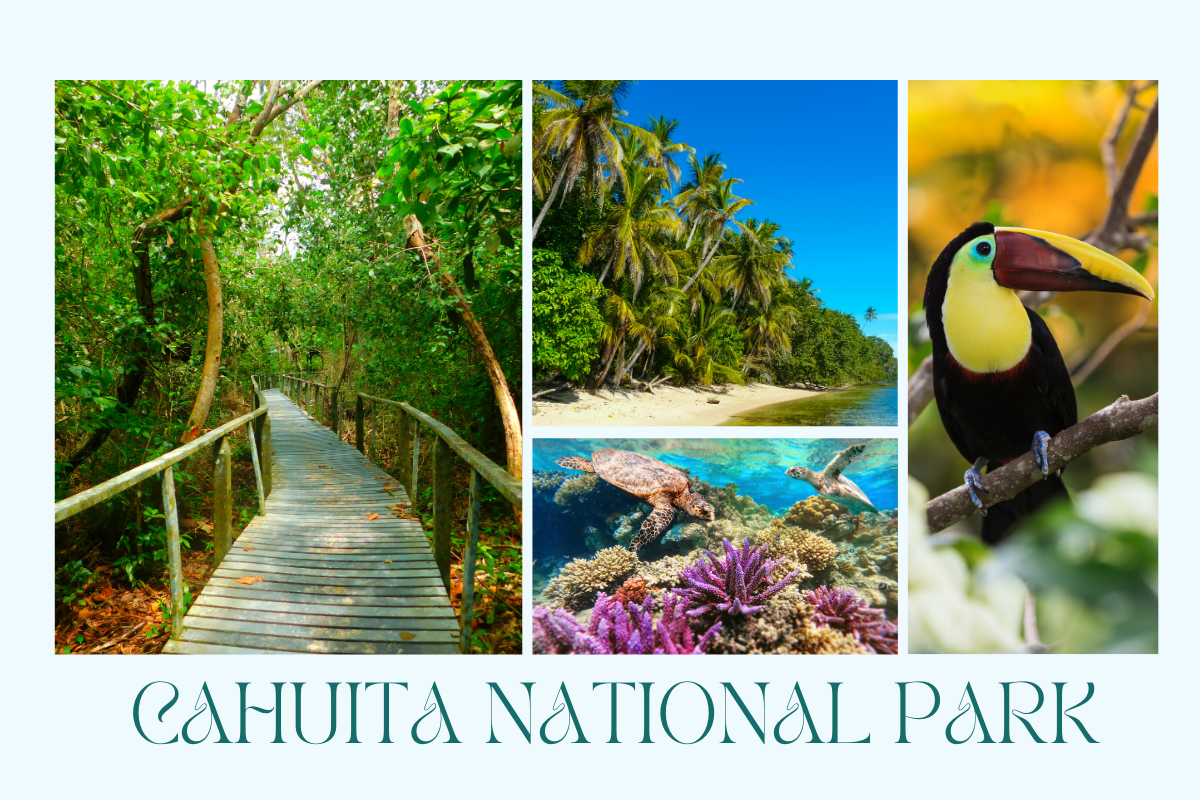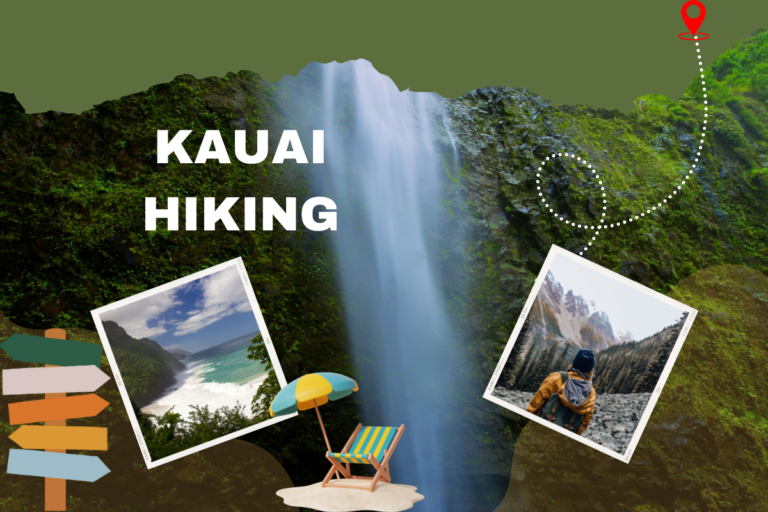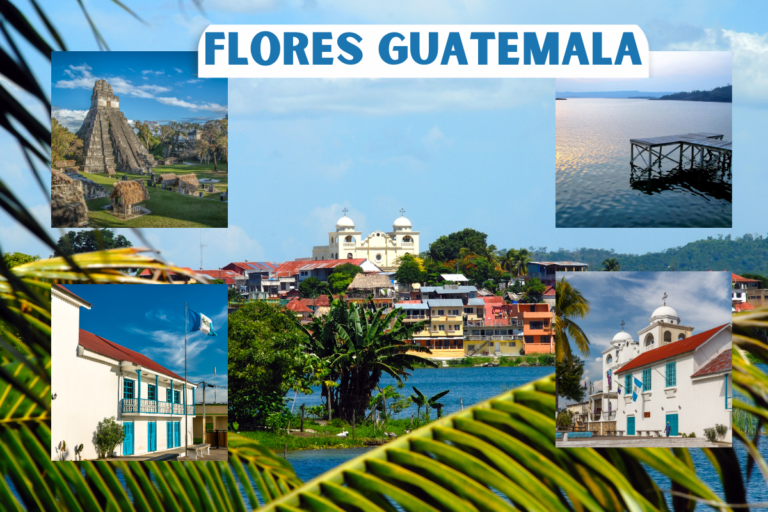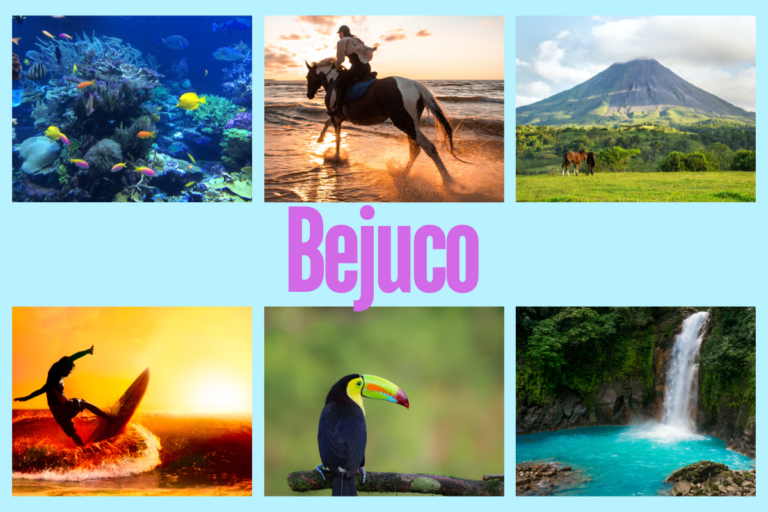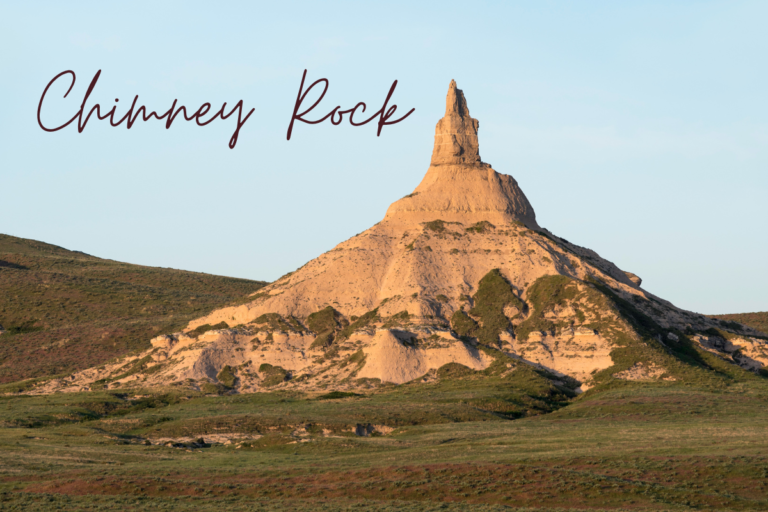Cahuita National Park: A Tropical Paradise in Costa Rica
Craving an adventure where each moment unveils a new marvel? Dive into Cahuita National Park in Costa Rica, where awe-inspiring landscapes and incredible biodiversity blend to create a treasure trove of thrilling experiences.
Whether you want to snorkel among vibrant coral reefs, explore lush rainforests, or relax on picturesque beaches, Cahuita National Park invites you to immerse yourself in its natural beauty and unique wildlife.
So, get ready to explore and be amazed by the many treasures of Cahuita National Park. Immerse yourself in this extraordinary destination, where its breathtaking beauty and thrilling activities will ignite your sense of adventure.
This article explores Cahuita National Park, its unique attractions, the ideal time to visit, top activities, nearby sites, stay-in and dine and trip essentials.
Exploring the Unique Cahuita National Park
Cahuita National Park is located a few kilometres south of Cahuita town in Limón Province, Costa Rica’s Caribbean coast. It covers about 1,067 hectares (2,640 acres) of land and sea and is known for its beautiful coral reefs, lush rainforests, and lovely beaches. Moreover, the park’s name means “mouth of the water” in the Bribri language.
Cahuita National Park was established in 1970 to protect its unique coral reef and coastal rainforest. Now, it’s a top spot for nature lovers and adventurers.
Unique Attractions of Cahuita National Park
Coral Reef
One of the main attractions of Cahuita National Park is its coral reef. It is the second-largest reef system in the world. The Cahuita Reef is famous for its rich marine life, including colourful corals, sponges, sea fans, and many types of fish.
Coastal Rainforest
Cahuita National Park’s coastal rainforest is a lush, tropical area with dense vegetation and tall trees. It is home to many plants and animals, which helps regulate the local climate. Visitors can walk along well-kept trails to see the wildlife and vibrant plants up close.
Beaches
For beach enthusiasts, Cahuita National Park has several beautiful beaches with white sand and clear turquoise waters. These beaches are great for relaxing, swimming, and sunbathing. Playa Cahuita, the main beach, is especially popular for its scenic beauty and peaceful atmosphere.
Mammals and Birds
You can see various Mammals and Birds at Cahuita National Park. The park is home to several mammals like howler monkeys, spider monkeys, and capuchin monkeys, which can often be seen in the trees. You might also spot sloths, anteaters, and different types of rodents.
For Birdwatchers, Cahuita National Park has over 150 bird species. You might see toucans, harpy eagles, and colourful parrots.
Marine Life
The coral reef in Cahuita National Park is full of marine life. Snorkelers and divers can see colourful fish like parrotfish, angelfish, and butterflyfish. You can also see sea turtles, rays, and sometimes sharks. Protecting this delicate environment is crucial because of its rich marine diversity.
Ideal Time to Visit Cahuita National Park
The best time to visit Cahuita National Park is from December to April during the dry season. The weather is sunny and warm which is great for hiking, snorkelling, and enjoying the beaches. You can also explore the trails and coral reefs easily during these months.
You can visit the park year-round. During the rainy season (May to November), it usually rains in short bursts in the afternoon, so mornings are often clear. Fewer crowds and a quieter experience are also benefits but be prepared for some rain.
In short, the dry season is best for visiting, but you can enjoy the park’s natural beauty all year round.
Top Activities and Must-See Attractions
Cahuita National Park offers a range of activities that allow visitors to experience its natural beauty and diverse ecosystems fully. Here are a few activities you can enjoy:
Snorkeling and Diving
A top attraction in the park is its coral reef, perfect for snorkelling and diving. The clear waters make it easy to see colourful corals and marine life. Guided snorkelling tours are available, where you can learn about the reef and its species from experts.
Hiking and Nature Walks
The park has well-kept trails for exploring the coastal rainforest and mangroves. The main trail along the coast offers great beach views and chances to see wildlife like monkeys, sloths, and colourful birds. Other trails go through the rainforest and mangroves, letting visitors experience the park’s different habitats.
Guided Wildlife Tours
If you are interested in learning more about the park’s plants and animals, you can join a guided wildlife tour. Guides offer insights into the park’s ecosystems, help spot wildlife, and share information about conservation and the importance of different species.
Birdwatching
Cahuita National Park is great for birdwatchers, with over 150 bird species. Bring binoculars and a bird guidebook to see toucans, harpy eagles, and different parrots. Early mornings and late afternoons are the best times to spot these birds, as they are more active then.
Kayaking and Canoeing
Explore the park’s mangrove swamps and coastal waters by kayak or canoe. This lets you see the park’s aquatic life up close and enjoy the calm waterways. Local companies offer rentals and guided tours.
Night Walks
Try a guided night walk to see the park’s nocturnal wildlife. You might spot night monkeys, owls, and insects. As the sun sets, the rainforest comes alive with new sights and sounds, making it a unique adventure.
Beach Picnicking
Pack a picnic and enjoy a day at one of Cahuita National Park’s beautiful beaches. Playa Cahuita and nearby beaches are perfect for a relaxing meal with views of the turquoise waters and lush surroundings.
Swimming and Sunbathing
Besides snorkelling, the park’s beaches are great for swimming and sunbathing. The calm, clear waters are perfect for a refreshing swim, and the sandy shores are ideal for relaxing and enjoying the sun.
Photography
Take your camera to capture the park’s natural beauty and wildlife. The colourful coral reefs, lush rainforests, and beautiful beaches provide many great photo opportunities.
Volunteer Opportunities
You can help with the park’s conservation by joining volunteer programs and taking part in beach cleanups, wildlife monitoring, or habitat restoration. Volunteering is a great way to support the park and get hands-on experience.
Beach Activities
Cahuita National Park is a great place for beach fun, like snorkelling in colourful coral reefs and swimming in clear waters. You can also relax on the sandy beaches or walk along the shore where the jungle meets the sea. It’s perfect for a mix of relaxation and adventure.
Wildlife Viewing
Wildlife lovers can explore the park’s different habitats to find its animals. Guided tours offer insights into the park’s plants and animals. Early mornings and late afternoons are the best times to see wildlife, as animals are more active then.
Explore Cahuita’s Dreamy Beaches
Playa Cahuita
Since Playa Cahuita is the main beach of the park, it is a popular spot for visitors. The soft, white sand and warm, clear water make this beach ideal for relaxing. You can swim, sunbathe, or just take in the beautiful views. It’s easy to reach from the park entrance and has a calm, inviting atmosphere.
Playa Blanca
This beach is famous for its clean white sand and clear, shallow water. Playa Blanca is great for snorkelling because the calm water lets you see underwater life clearly. It’s quieter than Playa Cahuita, making it a perfect place to relax and enjoy the marine life.
Playa Puerto Vargas
Near the Puerto Vargas entrance, this beach is well-equipped for visitors. The inviting waters are great for snorkelling and exploring marine life. The beach has toilets, showers, and picnic areas, making it a convenient place to spend a day by the sea.
Playa Vargas
Playa Vargas is a less well-known spot in the park. It’s a more private beach with fewer visitors and a peaceful atmosphere. It’s a great place to have a calm day by the water, where you can swim and relax without many people around.
Each beach in Cahuita National Park offers something different. Some are great for lively snorkelling, while others are perfect for quiet relaxation.
Nearby Must-See Spots
1. Puerto Viejo de Talamanca
About 16 kilometres (10 miles) south of Cahuita, Puerto Viejo de Talamanca is a lively town with Afro-Caribbean culture, vibrant nightlife, and beautiful beaches. You can explore local shops, eat at Caribbean restaurants, and enjoy the relaxed vibe of this popular spot.
2. Manzanillo Wildlife Refuge
Located about 30 kilometres (19 miles) south of Cahuita, the Manzanillo Wildlife Refuge offers an excellent opportunity for wildlife watching and nature walks.
3. Bribri Indigenous Reserve
Visit the Bribri Indigenous reserve, 40 kilometres (25 miles) from Cahuita, to explore their culture and traditions. You can learn about their crafts, herbal medicine, and way of life through guided tours and demonstrations.
4. Tortuguero National Park
About 100 kilometres (62 miles) northwest of Cahuita, Tortuguero National Park is famous for turtle watching and wildlife spotting. You can witness its canals, rivers, and rainforests are home to sea turtles, monkeys, and exotic birds.
5. Cacao Tour in Puerto Viejo
Take a cacao tour in Puerto Viejo to learn about chocolate’s history and production. You’ll see how cacao is farmed from bean to bar and enjoy tastings of tasty artisanal chocolate made from local cacao.
6. Riverside Hot Springs
Relax in natural hot springs by the riverside near Puerto Viejo. The warm, mineral-rich waters are perfect for unwinding after a day of exploring.
7. Salsa Brava Beach
Salsa Brava Beach is a short drive away from Cahuita National Park and is famous for its strong surf and great waves, attracting surfers. The beach has a relaxed vibe, with nearby restaurants and bars serving local food and drinks.
8. Gandoca-Manzanillo Wildlife Refuge
Further south of Manzanillo, the Gandoca-Manzanillo Wildlife Refuge is great for nature lovers. It has rainforests, mangroves, and coral reefs, and you can hike, watch birds, and spot wildlife.
9. Cahuita Town
Explore the charming town of Cahuita, the gateway to the national park. You can check out the local market, visit souvenir shops, and try traditional Costa Rican food at local restaurants.
Where to Stay During Your Visit
| Accommodation | Distance from Cahuita National Park | Speciality |
| Ocean View Lodge -Cahuita- | 800 m | Sea view |
| The Goddess Garden Eco Resort | 4.7 km | Pool, Indoor Yoga Studio, Spa and Garden |
| Playa Negra Guesthouse | 1.4 km | Tropical Garden View and Pool |
| Bungalows Aché | 220 m | Private Garden, Private Parking, |
| Umami Hotel | 17.9 km | Spa and Restaurant |
| Namu Garden Hotel & Spa | 17.3 km | Private Pool, Private house and Garden and Restaurant |
| Olinca Boutique Hotel | 18.1 km | Pool and Restaurant |
| La Shamana Ecolodge | 4.8 km | Spa and Panoramic Views |
Local Dining Highlights
| Restaurants | Distance from Cahuita National Park | Cuisine |
| Island Restaurant and Bar | 200 m | Caribbean and Seafood |
| Restaurante Éwa & Lounge Bar | 300 m | International and Caribbean |
| Aroma, Coffee Bar & Breakfast | 300 m | Costa Rican |
| El Encanto Restaurante | 1.0 km | Caribbean and international |
| Chao’s Bar Restaurant | 1.6 km | Caribbean and local Costa Rican |
| Restaurante Pizzeria Cahuita | 600 m | Italian and Costa Rican |
| Centro Turistico Brigitte | 1.6 km | Local Caribbean |
| Restaurante Bananas | 2.9 km | Costa Rican, Caribbean, Seafood |
What You Need to Know
Reaching Cahuita
Cahuita National Park is on Costa Rica’s Caribbean coast, about 43 kilometres (27 miles) south of Limón. You can drive there in about an hour from Limón, or use public transportation like buses and shared shuttles from Limón and nearby towns.
Entry Costs
The entrance fee to Cahuita National Park is small and collected at the park entrance. The fees support the park’s conservation and maintenance. Check the latest fees and park rules before your visit.
Opening Hours
Cahuita National Park is usually open from 8:00 AM to 4:00 PM daily. Check the park’s hours before your visit, as they can change and the park might be closed on holidays or for special events.
Cahuita National Park Entry Fee
Cahuita National Park has two entrances and each entrance to the park has different fees:
- Kelly Creek Entrance: There’s no set entrance fee here, but a donation of at least USD 5 (around 2,500 – 3,000 Colones) is encouraged.
- Puerto Vargas Entrance: This entrance requires a mandatory fee.
Is advance ticket booking required?
No need to book tickets in advance for Cahuita National Park. You can simply show up on the day and pay the entrance fee or donation at the park.
In-Park Facilities
Cahuita National Park is quite natural and undeveloped, so amenities are limited:
- Both Entrances: Both have toilets.
- Kelly Creek Entrance: Includes a shower for rinsing off after visiting Playa Blanca.
- Playa Puerto Vargas: Features toilets, showers, and a water refill station.
- Punta Cahuita Area: There are a few picnic tables.
There is no food available inside the park, so be sure to bring your own.
Items to Bring Along
When visiting Cahuita National Park, it is important to be well-prepared. Here are some essential items you could bring:
- Sun Protection: Sunscreen, sunglasses, and a hat to protect against the strong tropical sun.
- Insect Repellent: To ward off mosquitoes and other insects.
- Comfortable Footwear: Sturdy shoes or sandals for hiking and walking.
- Swimwear and Towel: For beach and snorkelling activities.
- Water and Snacks: To stay hydrated and energized during your visit.
- Camera: To capture the park’s stunning scenery and wildlife.
Eco-Friendly Tourism Practices
As a protected area, Cahuita National Park relies on responsible tourism to preserve its natural beauty and ecological balance. Visitors are encouraged to follow these guidelines:
- Stay on Marked Trails: To avoid damaging the park’s sensitive ecosystems.
- Respect Wildlife: Observe animals from a distance and do not disturb their natural behaviour.
- Avoid Littering: Carry out all trash and dispose of waste properly.
- Follow Park Regulations: Adhere to any rules or guidelines set by park authorities to ensure a safe and enjoyable visit for all.
Wrap Up
Cahuita National Park is a tropical paradise with beautiful coral reefs, rainforests, beaches, and wildlife. It’s perfect for snorkelers, nature lovers, or anyone looking for a peaceful getaway.
By respecting the park and following responsible tourism practices, visitors can help keep this amazing place special for future generations.
FAQs
1. Is Cahuita worth visiting?
- Yes, Cahuita is worth visiting for its beautiful beaches, rich wildlife, excellent snorkelling, and relaxed atmosphere. It offers a great mix of natural beauty and outdoor activities in a peaceful setting.
2. Do you need a guide for Cahuita?
- While you don’t necessarily need a guide to explore Cahuita National Park, having one can enhance your experience. A guide can provide valuable insights into the park’s wildlife, plant life, and history, and help you spot animals you might miss on your own.
3. Can you swim in Cahuita National Park?
- Yes, you can swim in Cahuita National Park, particularly at its beautiful beaches. Playa Cahuita and other nearby beaches offer safe swimming conditions in the clear, calm waters. However, always be aware of local conditions and safety guidelines, as some areas may have strong currents or other hazards.
4. Are there crocodiles in Cahuita?
- Yes, there are crocodiles in the Cahuita area, particularly in the nearby rivers and mangrove swamps.

